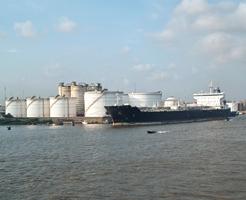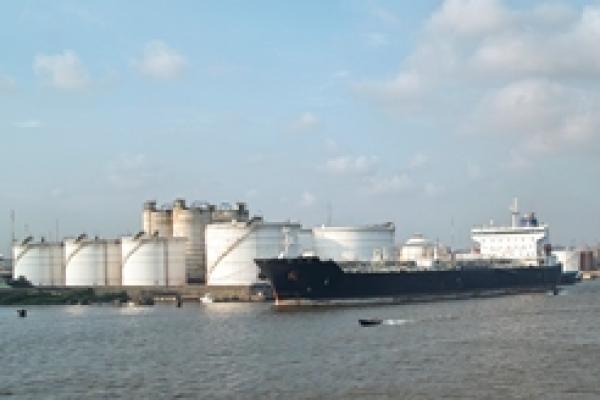
Steamship Mutual
Published: October 01, 2019

There has been substantial discussion in the press recently in relation to the difficulties facing commercial parties trying to load oil cargoes in Nigeria.
Problems started in July 2015 with the Nigerian National Petroleum Corporation (NNPC) banning 113 tankers from loading cargo in Nigeria. It appears that this ban was subsequently lifted (although it is not entirely clear whether the ban has been fully lifted); at that time NNPC issued a letter on 8 September 2015 which stated that the President approved the consideration of all incoming vessels into Nigerian territorial waters “subject to receipt of Letter of Comfort from all Terminal Operators and off-takers of Nigerian Oil and Gas as guarantee that nominated vessels are free and will not be utilized for any illegal activity whatsoever”.
The 8 September letter attached the pro forma for the Letter of Comfort which would be accepted – which included amongst other things an undertaking and guarantee “to indemnify NNPC or the Federal Government of Nigeria, against all consequences and/or liabilities of any kind whatsoever directly or indirectly arising from or relating to the deployment of the Vessel for activities extraneous to the contract and shall immediately upon demand without NNPC or the Federal Government having to substantiate the demand, reimburse or effect all payment necessitated by such illegal activity by the Vessel.”
Clearly this is an extremely broad indemnity – indeed it is not clear what definition would be given to the words “activities extraneous to the contract” and whether it could even cover circumstances where pirates come on board despite all efforts made by the Owner, Vessel and crew.
Following the issuance of the 8 September letter, there was confusion in the market as to which parties should be issuing the Letters of Comfort and what form any Letter of Comfort should take, given the onerous nature of the NNPC Letter of Comfort. Indeed, this impacted on fixtures and there was an increase in rates with some Owners refusing to trade to Nigeria and lift cargo there.
Intertanko, on behalf of Tanker Owners, had been seeking to engage with NNPC and had been advising their Owner Members that no Letter of Comfort should be given by Tanker Owners to NNPC, as they are not “terminal operators” or “off-takers”. Indeed, Intertanko stated that they are aware of tankers sailing in and out of Nigeria without provision of a Letter of Comfort.
As at 2 October, Intertanko had not been able to establish a dialogue with NNPC. However, Intertanko did report that NNPC had written again to Terminal Operators on 5 October stating that “In view of the reservations on the content of the Template of the Letter of Comfort earlier circulated, we have reviewed and have amended it to ensure suitability and acceptability to all parties’.” The Letter of Comfort now provides that the vessel “shall not be involved in any oil theft activity whilst in Nigerian territorial waters” and is to be provided by “off-takers, or Vessel Owners or terminal Operators for each lifting”.
Intertanko’s advice to Tanker Owners remains not to provide the Letter of Comfort and, as the Letter appears to give options as to who may issue it, the Letter may still be issued by Terminal Operators or Off-Takers and there is no confirmation from NNPC that they require anything to be provided by Owners. Indeed, Intertanko continue to note vessels sailing in and out of Nigeria without provision of a Letter of Comfort.
It is of course a commercial decision and subject to individual negotiations between Owners and Charterers as to whether Owners do then provide a Letter of Comfort. Intertanko have prepared an Intertanko Nigeria Trade Clause as well as a “model letter” which provides only that Owners confirm that the vessel will not knowingly engage in any illegal activities and will strictly follow any legal instruction issued in accordance with the terms of the Charter Party.
Whether or not a Charterer can prevail upon an Owner to issue a Letter of Comfort will therefore depend on the terms and facts of each individual situation. Under a time charter, for example, it is probably not a lawful employment order to require the Owner to issue a Letter of Comfort containing terms which are more onerous than those of the charterparty (as per the Letter of Comfort requested by NNPC), although it may be lawful if the Letter does nothing more than contain a statement of what is already arguably an implied obligation on the Vessel not to engage in illegal activity.
As with any loading, Members should maintain best practices and be careful to obtain bill of lading figures which are as accurate as possible and provide outturn figures and other documents if requested by NNPC (or other local governmental entities). If previously subject to the ban, such Owners should be very cautious.
There are other issues to be considered, including in relation to Nigerian local law. Since the issues surrounding these Letters of Comfort are still evolving any Members looking to trade to Nigeria should obtain advice on these issues and Tanker Owner Members should consult Intertanko’s website for the most up to date information on this developing issue.
Article by Beth Larkman


